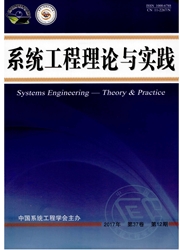

 中文摘要:
中文摘要:
基于中国股权较为集中的资本市场背景,通过构建理论模型,利用民营上市公司的数据,理论分析和实证检验了最终控制人控制权与现金流权分离度与企业负债率的关系.研究发现,最终控制人两权分离度越大,企业的负债率即越高,反映了“股东-债权人”冲突在集中股权结构下可能会变得更加严重.负债融资不仅难以发挥应有的相机治理作用,还可能成为最终控制人利益侵占的对象.研究同时发现,对于最终控制人兼任企业的最高级管理者或者所持现金流权越低的公司,其最终控制人两权分离度与负债率的负相关关系表现得更加明显,说明该种情况下的“股东-债权人”冲突也更加严重.这也从另外一个角度进一步证实了最终控制人可能会通过提高负债率实现风险转移和利益侵占.
 英文摘要:
英文摘要:
Based on the condition of the concentrated ownership in our country, we examine the relation-ship of the separation of cash flow from control of ultimate controller and leverage through building modeland empirical test. We find the negative relation of the separation of cash flow from control of ultimatecontroller and leverage, which testify the more serious conflicts between shareholders and creditors underthe concentrated ownership. Debt financing not only could not bring the contingent governance, but alsobecome a tunneling of controlling shareholders' expropriation on minority shareholder. Ultimate controllerbeing chairman of the board of directors and having low cash flow rights will lead more serious negativerelation between the separation of cash flow from control of ultimate controller and leverage and moreserious conflict between shareholder and creditors, which testifies the risk transfer and expropriation ofultimate controller through the higher leverage.
 同期刊论文项目
同期刊论文项目
 同项目期刊论文
同项目期刊论文
 Financial relationships, banking structure and financing constraints: evidence from private enterpri
Financial relationships, banking structure and financing constraints: evidence from private enterpri 期刊信息
期刊信息
